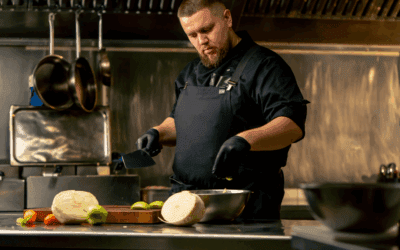Effective procurement transcends the mere act of placing an order. To achieve sustained success, it requires a continuous, collaborative approach that evolves into a true partnership. This transformation, while nuanced, is critical in fostering mutual benefits and long-term achievements for both parties involved.
The question, “When does consulting procurement turn into a partnership?” reveals a deeper exploration beyond the transactional nature of purchasing consulting. While a simple viewpoint might conclude that procurement ends with the signing of a contract, the reality is more complex. Successful procurement involves an ongoing process that fosters communication, aligns objectives, and cultivates continuous improvement. This approach not only optimizes the relationship but also paves the way for substantial, mutual gains.
Everyone talks about partnering with your suppliers—it’s the trendy topic in the procurement world. But let’s take a provocative approach here (cue the sarcastic smirk). How about partnering with procurement? We know this might sound unheard of, but trust us (we are the experts, after all)—it’s the only way to get the best out of your consulting engagements. Embracing this mindset, where procurement isn’t just a gatekeeper but a strategic partner, is the key to unlocking unparalleled success and maximizing the value from your consulting investments.
How to Transform Procurement into a Strategic Partner
Too many companies looking to work with consultants underestimate the complex procurement system. On the surface, it seems like a straightforward process that ends with the order. But consulting is not that straightforward; simply signing a contract and assuming everything will work out exactly as specified neglects the versatility of consulting, and intellectual services in general.
Ultimately, both sides hope to develop a mutually-beneficial professional relationship. Regarding procurement, as a long-term process improves communication, better aligns the scope of the relationship, and provides the necessary insights to achieve continuous improvement and productive partnership. Consider these 5 steps to a successful procurement process:
1) After the Proposal
Don’t disengage with consultants you did not select for mutual business. Instead, explain why you choose to go in a different direction, giving honest feedback about the strengths and weaknesses of their proposal and how it could have better aligned with your expectations.
For you, this step requires only a little effort. But for the consultants you didn’t select, you provide invaluable insights about your expectations, along with their ability to compete for proposals and opportunities like yours in the future.
Consultants who are willing to listen will be able to use these lessons to better compete for similar opportunities in the future. And who knows? Perhaps you will be in need of a consultant again in the future, so nurturing relationships with a range of consultants can be beneficial for both sides.
2) Change Management
No matter how hard you try, establishing and maintaining a relationship with consultants in executing a project will not be a linear process. During the course of the project, a number of changes will take place that you didn’t account for during the proposal or contract. Some of these changes may include:
Scope changes. New tasks may be added as a need becomes clear, or deliverables that turn out to be impossible or difficult to reach may be dropped.
Staffing changes. Organizations are in constant flux, and both sides may have to account for a turnover that requires adjustment and additional training.
Timeline changes. Everything before the project starts is an estimate; you may have to adjust the pace as the true duration of the project comes into view.
Unforeseen events. Budget changes, project merges, project freezes, or any other events may occur that affect the execution of the project.
Change management is necessary to ensure that these changes do not derail the project. By keeping an active log of all changes as they occur, you can adjust the commercial conditions in due time and before they become dangerous.
3) Mid-Project Assessment
As early as possible, set yourself and your consultants a benchmark toward the middle of the project. This is the perfect time to review the initial objectives and get back on track toward accomplishing them on time.
As you get into the details of any project, it’s easy to get carried away with minutia that ultimately won’t affect the overall success. A Mid-Project Assessment enables you and your team to ensure that these inevitable tangents don’t endanger the timeline and success of the larger project.
The Mid-Project Assessment should be a major event for everyone involved. Keep it separate from regular operational project reviews, which should happen in smaller circles and on a regular basis.
4) Project Closure
Once the project has drawn to an end, it’s time for a thorough evaluation. Now it’s time to compare your end results with your initial goals, which enables you to understand and begin to prepare the adjustments that are still necessary to reach your ultimate goal.
At this time, you can also evaluate the relationship with your consultants, and whether they delivered on the initial promise. Evaluate your provider using dimensions such as commercial quality, delivery quality, posture, talent & expertise, and ROI as it relates to the project.
5) Mutual Continuous Improvement
Nobody is perfect, and no project or professional relationship will be flawless. The project closure is an opportunity for you to give feedback to your project suppliers about your thoughts on the results, the relationship dynamics, and any other dimensions you covered in your project closure review above.
Giving feedback enables your consultants to improve their business by gaining a clearer understanding of client expectations and identifying potential blind spots. Constructive feedback will also uncover relationship difficulties that may be improved in a future partnership with you or other clients.
You can take advantage of the same intelligence because it better enables you to understand the consultant’s journey through your project. As a result, you will improve supplier competitiveness, and ultimately increase the potential for positive outcomes. By improving your procurement process, you will be able to contribute to intelligence gathering about the market and its segments.
Finally, you can benefit from feedback about the project as much as your consultant. Hearing from your partner about the relationship and its successes and failures allows you to uncover what you can do better in the future, ultimately helping you work your way toward better project implementation. Simply asking for feedback will position you as being committed to good practices, openness, and transparency.
Leveraging Consource.io to Enhance Consulting Procurement
In the realm of modern procurement, tools like Consource.io are game changers. They offer a structured yet flexible platform that enhances every stage of the consulting engagement process, addressing many of the challenges discussed above.
Enable Teamwork at Every Stage:
Effective procurement starts with involvement right from the project’s inception. Consource.io facilitates this by allowing procurement teams to get involved early, ensuring alignment of objectives and clear understanding of the project’s scope. This early involvement is crucial for setting the stage for a successful partnership.
Collaborative Provider Sourcing and Proposal Evaluations:
With Consource.io, sourcing and evaluating providers becomes a collaborative effort. The platform’s in-app tools support detailed proposal evaluations, fostering a more thorough and inclusive decision-making process. This collaborative approach ensures that the selected consultants align perfectly with the project’s needs.
In-app Contract Negotiation and Red-lining:
Negotiating contracts can be a cumbersome process, but Consource.io streamlines it with in-app negotiation and red-lining capabilities. This ensures that all stakeholders are on the same page and that any changes are tracked and documented in real time, reducing the risk of misunderstandings and facilitating smoother transitions through different project phases.
Efficient Supplier Relationship Management:
Ongoing communication and relationship management are critical for successful consulting engagements. Consource.io’s in-app messaging keeps all conversations in one place, making it easier to manage supplier relationships. Additionally, the platform provides up-to-date, 360° provider profiles, ensuring that all relevant information is easily accessible when needed.
Custom Onboarding and Performance Management:
Consource.io supports custom onboarding processes with pre-populated information, ensuring that new consultants are quickly brought up to speed. The platform also helps manage provider performance and risks, allowing procurement teams to identify and address issues before they escalate. By pruning low performers and fostering continuous improvement, the platform ensures that the consulting partnership remains productive and aligned with the company’s goals.
Strategic Project Management and Governance:
For business leaders, Consource.io offers robust tools for managing projects collaboratively and efficiently. The platform’s collaborative workspace allows for seamless management of tasks, files, meetings, and messages, all in one place. This integrated approach ensures that all team members are aligned and working towards common goals.
Comprehensive Project Closure:
At the end of a project, Consource.io facilitates a thorough evaluation process. It allows teams to validate milestones, deliverables, invoices, and change orders all in one place. This comprehensive review helps measure provider performance and analyze ROI, ensuring that all insights are captured and capitalized on for future projects.
Conclusion
Transforming procurement into a partnership involves a paradigm shift from transactional interactions to continuous collaboration. By embracing change management, regular assessments, and mutual feedback, businesses can foster dynamic and resilient partnerships.
Leveraging technology and building trust further enhance these relationships, ensuring long-term success and mutual benefits. Ultimately, the evolution of procurement into a strategic partnership is essential for achieving sustained excellence in project outcomes and business growth.
Often, procurement professionals express frustration about not being involved earlier in the process, especially when it comes to consulting. Best-in-class consulting buyers understand that efficient procurement can only be achieved through a collaborative approach where procurement is recognized as a full business partner. This synergy requires business lines to bring their needs and business acumen while procurement contributes its buying experience and negotiation skills.
For this collaboration to thrive, a culture of partnership must be deeply embedded in daily practices. Anything less results in subpar outcomes, where one function leads while the other merely follows. By integrating procurement early and fostering a cooperative environment, businesses can ensure that all parties are actively engaged and valued, leading to better decision-making and more effective procurement strategies.
Building this culture of collaboration isn’t a one-time effort but a continuous process of engagement, communication, and shared goals. When procurement and business lines work together seamlessly, they create a powerful force that drives innovation, efficiency, and success. This integrated approach transforms procurement from a transactional activity into a strategic function that delivers lasting value and competitive advantage.
effective procurement effective procurement effective procurement
effective procurement effective procurement effective procurement
effective procurement effective procurement effective procurement
effective procurement effective procurement effective procurement
Frequently Asked Questions
What is the key to transforming procurement into a partnership?
The key lies in continuous engagement, effective communication, and mutual improvement. Treating procurement as an ongoing process rather than a one-time transaction fosters a collaborative and beneficial relationship.
How does change management impact procurement partnerships?
Change management ensures that both parties can adapt to project variations, maintaining alignment and momentum. It helps in mitigating risks and ensuring the successful completion of projects despite unforeseen changes.
Why is feedback important in procurement?
Feedback provides valuable insights into performance and expectations. It enables both parties to improve and align better in future projects, fostering a culture of continuous improvement and mutual growth.
How can technology enhance procurement processes?
Technology enhances efficiency through real-time communication, document sharing, and project management platforms. Data analytics enable informed decision-making, further improving procurement strategies and outcomes.
What role does trust play in procurement partnerships?
Trust is fundamental to collaboration and risk management. It ensures that both parties can work together effectively, addressing challenges and mitigating risks with confidence and mutual support.
How can businesses cultivate long-term procurement relationships?
Long-term relationships are cultivated through ongoing engagement, mutual respect, and continuous collaboration. Networking and knowledge sharing also play a crucial role in building sustainable partnerships.








0 Comments